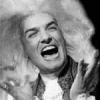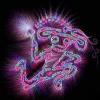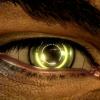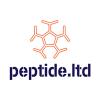Huge thanks to Dr. Hill for sharing his thoughts! I love presenting counterpoints and opposing arguments and letting everyone make their own decisions.
If anyone has any questions for Dr. Hill feel free to ask them here. He'll be checking in periodically throughout the weekend and replying when he has a chance. In order to save time let me go ahead and post answers to two of the most common questions he's frequently asked.
1) Which home device/software do you recommend for neurofeedback training?
Answer: Probably the best cost-effective, actually usable-for-training setup out there is something from
PocketNeurobics.com and either BioExplorer or BioEra for software (both available through PN as well, in "kits"). PN has 2 and more channel EEG amps, is the best deal running in cost. You need a windows machine, too, and ideally one with a dedicated video card.
2) What is the reading list for your upcoming class? Where can I get more info on neurofeedback training?
Answer: Required Reading (Articles):Arns M, Drinkenburg W, Leon Kenemans J. (2012). The effects of QEEG-informed neurofeedback in ADHD: an open-label pilot study. Appl Psychophysiol Biofeedback. 37(3):171-80. doi: 10.1007/s10484-012-9191-4.
Arns M, Kenemans JL. (2012). Neurofeedback in ADHD and insomnia: Vigilance stabilization through sleep spindles and circadian networks. Neurosci Biobehav Rev. doi: 10.1016/j.neubiorev.2012.10.006.
Barnea A, Rassis A, Zaidel E. (2005). Effect of neurofeedback on hemispheric word recognition. Brain Cogn. 59(3):314-21.
Beauregard M, Lévesque J. (2006). Functional magnetic resonance imaging investigation of the effects of neurofeedback training on the neural bases of selective attention and response inhibition in children with attention-deficit/hyperactivity disorder. Appl Psychophysiol Biofeedback. 31(1):3-20.
Choi, S. W., Chi, S. E., Chung, S. Y., Kim, J. W., Ahn, C. Y., & Kim, H. T. (2011). Is alpha wave neurofeedback effective with randomized clinical trials in depression? A pilot study. Neuropsychobiology, Neuropsychobiology, 63(1), 43-51. doi:10.1159/000322290
de Zambotti M, Bianchin M, Magazzini L, Gnesato G, Angrilli A. (2012). The efficacy of EEG neurofeedback aimed at enhancing sensory-motor rhythm theta ratio in healthy subjects. Exp Brain Res. 221(1):69-74. doi: 10.1007/s00221-012-3148-y.
Gruzelier J, Egner T, Vernon D.(2006). Validating the efficacy of neurofeedback for optimising performance. Prog Brain Res. 159:421-31.
Egner T, Gruzelier JH. (2004). EEG biofeedback of low beta band components: frequency-specific effects on variables of attention and event-related brain potentials. Clin Neurophysiol. 115(1):131-9.
Gevensleben, H., Rothenberger, A., Moll, G. H., & Heinrich, H. (2012). Neurofeedback in children with ADHD: validation and challenges. Expert Rev Neurother, Expert Rev Neurother, 12(4), 447-60. doi:10.1586/ern.12.22
Gevirtz, R. N. (2003). The promise of HRV biofeedback: Some preliminary results and speculations. Biofeedback,31(3), 18-19.
Gilbert, C. (2005). Better chemistry through breathing: The story of carbon dioxide and how it can go wrong. Biofeedback,33(3), 100-104.
Gruzelier JH. (2013). Differential effects on mood of 12-15 (SMR) and 15-18 (beta1) Hz neurofeedback. Int J Psychophysiol. doi: 10.1016/j.ijpsycho.2012.11.007.
Hirshberg LM, Chiu S, Frazier JA. (2005). Emerging brain-based interventions for children and adolescents: overview and clinical perspective. Child Adolesc Psychiatr Clin N Am. 14(1):1-19, v.
Holtmann M, Steiner S, Hohmann S, Poustka L, Banaschewski T, Bölte S. (2011). Neurofeedback in autism spectrum disorders. Dev Med Child Neurol. 53(11):986-93. doi: 10.1111/j.1469-8749.2011.04043.x.
Lansbergen, M. M., van Dongen-Boomsma, M., Buitelaar, J. K., & Slaats-Willemse, D. (2011). ADHD and EEG-neurofeedback: a double-blind randomized placebo-controlled feasibility study. J Neural Transm, J Neural Transm, 118(2), 275-84. doi:10.1007/s00702-010-0524-2
LaVaque, T. J., Hammond, D. C., Trudeau, D., Monastra, V., Perry, J., Lehrer, P., Matheson, D., & Sherman, R. (2002, December). Template for developing guidelines for the evaluation of the clinical efficacy of psychophysiological evaluations. Applied Psychophysiology and Biofeedback,27(4), 273-281.
Linden, D. E. J., Habes, I., Johnston, S. J., Linden, S., Tatineni, R., Subramanian, L., Sorger, B., et al. (2012). Real-time self-regulation of emotion networks in patients with depression. PLoS One, PLoS One, 7(6), e38115. doi:10.1371/journal.pone.0038115
Loo, S. K., & Makeig, S. (2012). Clinical utility of EEG in attention-deficit/hyperactivity disorder: a research update. Neurotherapeutics, Neurotherapeutics, 9(3), 569-87. doi:10.1007/s13311-012-0131-z
Monastra VJ, Lynn S, Linden M, Lubar JF, Gruzelier J, LaVaque TJ. (2005). Electroencephalographic biofeedback in the treatment of attention-deficit/hyperactivity disorder. Appl Psychophysiol Biofeedback. 30(2):95-114.
Moss, D. (2004). Heart rate variability (HRV) biofeedback. Psychophysiology Today,1, 4-11.
Ros T, Moseley MJ, Bloom PA, Benjamin L, Parkinson LA, Gruzelier JH. (2009). Optimizing microsurgical skills with EEG neurofeedback. BMC Neurosci. 10:87. doi: 10.1186/1471-2202-10-87.
Ros, T., Munneke, M. A. M., Ruge, D., Gruzelier, J. H., & Rothwell, J. C. (2010). Endogenous control of waking brain rhythms induces neuroplasticity in humans. The European journal of neuroscience, The European journal of neuroscience, 31(4), 770-8. doi:10.1111/j.1460-9568.2010.07100.x
Sterman MB, Egner T.(2006). Foundation and practice of neurofeedback for the treatment of epilepsy. Appl Psychophysiol Biofeedback. 31(1):21-35.
Sterman MB.(2010). Biofeedback in the treatment of epilepsy. Cleve Clin J Med. 2010 Jul;77 Suppl 3:S60-7. doi: 10.3949/ccjm.77.s3.11.
Thompson L, Thompson M, Reid A.(2010). Neurofeedback outcomes in clients with Asperger's syndrome. Appl Psychophysiol Biofeedback. 35(1):63-81. doi: 10.1007/s10484-009-9120-3.
Vernon D, Egner T, Cooper N, Compton T, Neilands C, Sheri A, Gruzelier J. (2003). The effect of training distinct neurofeedback protocols on aspects of cognitive performance. Int J Psychophysiol. 47(1):75-85.
Yucha, C., & Gilbert, C. (2004). Evidence-based practice in biofeedback and neurofeedback. Wheat Ridge, CO: AAPB.
Optional (books):Coben (Editor) & Evans (Editor) (2010). Neurofeedback and Neuromodulation Techniques and Applications
Demos, J. N. (2005). Getting started with neurofeedback. New York: W. W. Norton & Company.
Kropotov (2008) Quantitative EEG, Event-Related Potentials and Neurotherapy.
Schomer (Editor), Lopes da Silva (2010). Niedermeyer's Electroencephalography: Basic Principles, Clinical Applications, and Related Fields.





















































